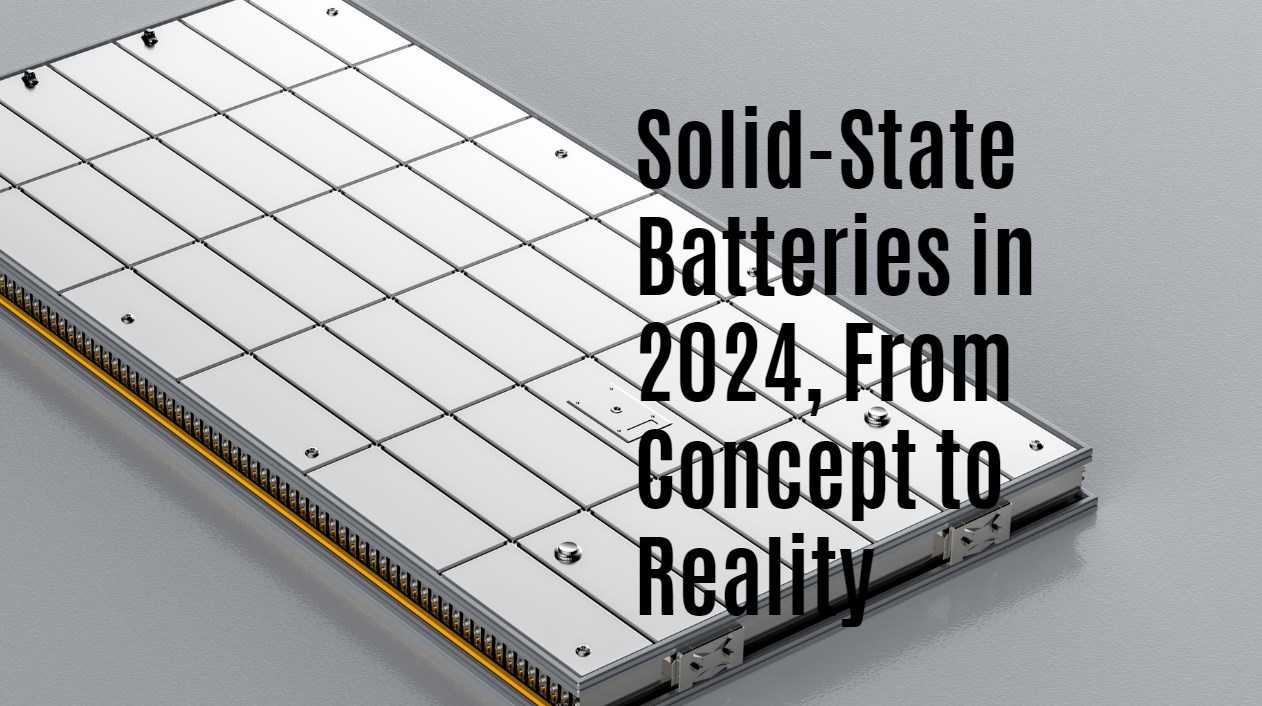Solid-state batteries represent a significant advancement in energy storage technology, promising higher energy density, enhanced safety, and longer lifespans compared to traditional lithium-ion batteries. As we move into 2024, the transition from concept to reality for solid-state batteries is gaining momentum, driven by technological innovations and increasing demand for electric vehicles (EVs).
Current State of Solid-State Batteries
In 2024, solid-state batteries are poised to make substantial strides in the automotive industry. Major manufacturers, including BYD and Mercedes-Benz, are investing heavily in solid-state technology, aiming to overcome existing challenges such as high production costs and complex manufacturing processes. The anticipated benefits include:
- Higher Energy Density: Solid-state batteries can achieve energy densities of up to 450 Wh/kg, significantly improving vehicle range.
- Improved Safety: By eliminating flammable liquid electrolytes, these batteries reduce the risk of fires and thermal runaway incidents.
- Longer Lifespan: Solid-state batteries can endure between 8,000 to 10,000 charge cycles, far exceeding the lifespan of conventional lithium-ion batteries.
Key Developments in 2024
1. Industry Events and Collaborations
The SOLID-STATE BATTERY TECH 2024 exhibition is set to become a premier platform for discussing advancements in solid-state battery technologies. This event will feature collaborations among OEMs and industry leaders focused on reducing manufacturing costs and enhancing battery performance. Key topics include:
- Economic outlooks for EV battery markets.
- Innovations in solid electrolyte materials.
- New manufacturing processes aimed at achieving economies of scale.
2. Manufacturer Insights
BYD’s chief scientist recently indicated that while widespread adoption may take five years, initial applications will likely be limited to high-end models. This cautious optimism reflects ongoing research efforts to address the complexities associated with integrating solid-state batteries into vehicles.
3. Breakthroughs in Production
Companies like Gotion Hi-Tech and ProLogium are making strides toward mass production of solid-state batteries. Gotion has launched the first all-solid-state battery with an energy density of 350 Wh/kg, while ProLogium plans to open a giga-scale factory aimed at producing these advanced batteries by 2027.
Challenges Ahead
Despite promising advancements, several challenges remain:
- High Production Costs: Current costs for solid-state batteries are still prohibitive compared to lithium-ion alternatives. Efforts are underway to bring costs down to around $100/kWh.
- Manufacturing Complexity: The intricate processes required to produce solid-state batteries need further refinement before large-scale implementation becomes feasible.
- Market Readiness: While some prototypes are being developed, full-scale commercial viability is still a few years away.
Latest News
- BYD anticipates that solid-state batteries will be integrated into high-end models within five years.
- Mercedes-Benz has partnered with Factorial to develop ultra-efficient all-solid-state batteries that could extend EV range by up to 80%.
- ProLogium is set to begin mass production of solid-state batteries by 2027 at its new giga-scale factory.
- The SOLID-STATE BATTERY TECH 2024 conference will explore innovative solutions and manufacturing techniques aimed at overcoming current challenges.
Redway Expert Comment
“The advancements in solid-state battery technology mark a pivotal moment for the electric vehicle industry. At Redway Battery, we recognize the potential of these innovations to enhance safety and performance while addressing the critical challenges facing current battery technologies. As manufacturers continue to refine production processes and reduce costs, we anticipate that solid-state batteries will play a crucial role in shaping the future of energy storage.”



